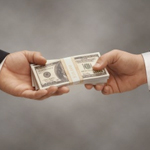You are herePolitico: Karl Rove vs. the Koch brothers
Politico: Karl Rove vs. the Koch brothers
-By Kenneth P. Vogel
October 10, 2011- Karl Rove’s team and the Koch brothers’ operatives quietly coordinated millions of dollars in political spending in 2010, but that alliance, which has flown largely under the radar, is showing signs of fraying.
And with each network planning to dwarf its 2010 effort, Republicans worry that the emerging rivalry between the two deepest-pocketed camps in the conservative movement could undercut their party’s chances of taking the Senate and White House in 2012.
The billionaire industrialist brothers David and Charles Koch plan to steer more than $200 million — potentially much more — to conservative groups ahead of Election Day, POLITICO has learned. That puts their libertarian-leaning network in the same league as the most active of the groups in the more establishment-oriented network conceived last year by veteran GOP operatives Rove and Ed Gillespie, which plans to raise $240 million.
The fault lines revealed themselves this summer, when the camps split on the highest-profile conservative movement issue of the day: The biggest groups in the Rove-Gillespie network supported House Speaker John Boehner’s bill to increase the debt ceiling and the Koch brothers’ primary political group, Americans for Prosperity, pressured conservatives to oppose it.
They also have spent big on seemingly competing infrastructure. The networks recently launched similar initiatives to woo Hispanic voters. And their allies are spending millions to build dueling voter files to help their respective camps get out the vote. The Republican National Committee recently partnered with associates of Rove and Gillespie on a privately run database, which could give them an advantage over the Koch-backed data project.
“With a broad-based conservative movement — or any political movement — it’s obvious that there’s often going to be competition, rivalries, egos involved,” said Art Pope, a Koch intimate who chairs an arm of Americans for Prosperity and has advocated for the Kochs’ voter database, which is called Themis.
“But overall, that competition results in a better work product and better results than a single authoritarian decision that there should be only one product — whether it’s a voter database or whatever — that everyone must use,” said Pope.
Behind the competition are ideological and stylistic differences that have bred suspicion among some in each camp.
